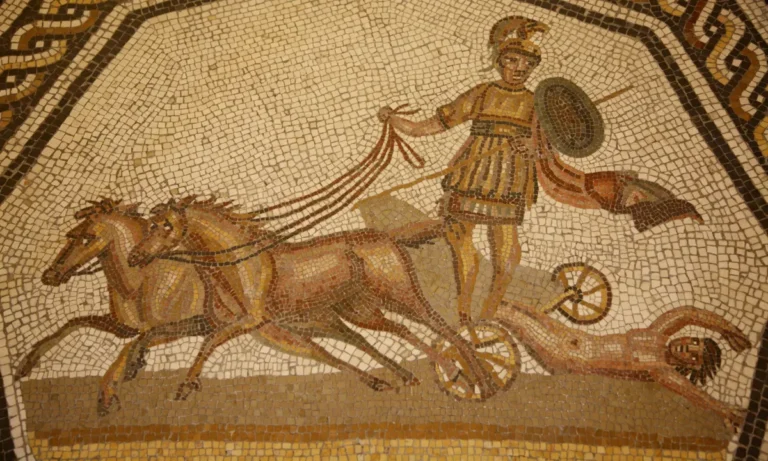In the extensive landscape of historical Greek literature, few subject matters are as profound and compelling as that of μήνισ (ménis). This time period, often translated as “wrath” or “rage,” plays a crucial role in Homer’s epic, “The Iliad,” where it’s far prominently related to Achilles, the best of the Greek warriors. Unlike mere human anger, μήνισ represents a divine and nearly uncontrollable pressure, an anger that transcends mortal obstacles and impacts the fates of gods and men alike.
The Epic’s Opening: The Wrath of Achilles
“The Iliad” famously opens with an invocation to the Muse to sing of the wrath of Achilles. This invocation units the tone for the entire epic and underscores the importance of Achilles’ anger:
“Sing, O goddess, the anger of Achilles son of Peleus, that brought
countless ills upon the Achaeans.”
Here, Homer immediately introduces μήνισ as the riding pressure behind the narrative. The wrath of Achilles isn’t only a personal vendetta however a cosmic event with a ways-attaining outcomes. It ends in great struggling and loss for each the Greeks and the Trojans, shaping the course of the Trojan War.
The Catalyst: Agamemnon’s Insult
The immediately reason of Achilles’ μήνισ is the insult he receives from Agamemnon, the leader of the Greek forces. Agamemnon seizes Briseis, a captive lady presented to Achilles as a prize of honor. This act of disrespect infuriates Achilles and ignites his divine wrath. For Achilles, this is not simply approximately the loss of a woman but a profound affront to his honor and status.
Achilles’ response is fast and intense: he withdraws from the war, refusing to combat for the Greeks. His absence at the battlefield has dire consequences, as the Trojans, led via Hector, gain the top hand. The Greeks go through greatly, and their morale plummets. Achilles’ μήνισ therefore becomes a pivotal factor within the unfolding tragedy.
Divine Dimensions: The Role of the Gods
In “The Iliad,” μήνισ isn’t always only a human emotion but a phenomenon with divine implications. The gods themselves are deeply worried in the occasions surrounding Achilles’ wrath. Zeus, Hera, Athena, and Apollo, amongst others, take sides and intrude in human affairs, similarly complicating the already tumultuous scenario.
Zeus, the king of the gods, performs a important function in this divine drama. He honors Achilles’ request to punish the Greeks for Agamemnon’s offense. This divine guide amplifies the effects of Achilles’ wrath, reworking it into a cosmic event that reverberates through both the mortal and immortal geographical regions.
The Turning Point: Patroclus’ Death
Achilles’ μήνισ reaches its zenith with the death of his cherished partner, Patroclus. Patroclus, wearing Achilles’ armor, enters the warfare in an try to rally the Greeks. However, he is slain by Hector, the Trojan prince. This tragedy propels Achilles’ wrath to new heights. His grief and rage are boundless, and he re-enters the conflict with a ferocity this is each awe-inspiring and terrifying.
Achilles’ return to the battlefield marks a turning point in the epic. His wrath is now directed no longer simplest at Hector but at the entire Trojan army. The scenes of Achilles’ rampage are some of the most vivid and brutal in “The Iliad.” His μήνισ drives him to desecrate Hector’s body, dragging it around the partitions of Troy in a display of overwhelming vengeance.
The Resolution: The Meeting with Priam
Despite the devastating effects of Achilles’ wrath, “The Iliad” additionally offers a moment of poignant decision. In one of the most transferring scenes of the epic, Priam, the elderly king of Troy and Hector’s father, comes to Achilles to beg for the go back of his son’s frame. This stumble upon is a powerful second of humanity amidst the carnage of conflict.
Priam’s plea touches Achilles deeply, evoking his very own memories of his father, Peleus. In this second, Achilles’ μήνισ is tempered through empathy and a recognition of shared mortality. He consents to go back Hector’s frame, and the two guys, as soon as sour enemies, discover a moment of common ground of their shared grief. This scene highlights the ability for reconciliation and expertise even inside the midst of severe wrath.
Conclusion: The Legacy of Μήνισ
The subject matter of μήνισ in “The Iliad” is a testomony to the complex nature of human emotion and the far-accomplishing outcomes of divine wrath. Achilles’ μήνισ drives the narrative forward, shaping the destinies of both the Greek and Trojan heroes. It is a force that is each unfavorable and transformative, revealing the depths of human ardour and the capacity for both devastation and redemption.
Through the lens of μήνισ, Homer explores the elaborate interplay between honor, revenge, and empathy. Achilles’ journey from wrath to reconciliation offers profound insights into the human situation and the long-lasting power of epic storytelling. The idea of μήνισ continues to resonate thru the ages, reminding us of the robust and frequently unpredictable nature of anger and the opportunity of finding humanity even inside the midst of rage.

